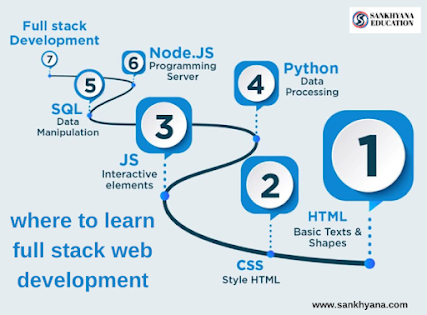The Data Science Trends That Will Change the World
The Data Science Trends That Will Change the World
Data science trends like AI-driven automation, responsible AI ethics, quantum computing, and augmented analytics are poised to reshape industries, drive innovation, and solve complex global challenges. As data becomes the new currency, these trends will catalyze transformation, enabling smarter decision-making, personalized experiences, and unprecedented insights across the world.
Introduction
In today's digitally-driven world, data is often touted as the new oil, and for good reason. The explosive growth of data has led to the rise of data science, a field that combines statistics, machine learning, and domain expertise to extract valuable insights from this sea of information. As data science continues to evolve, several prominent trends are emerging that have the potential to revolutionize industries, reshape economies, and even transform society as a whole. In this blog, we'll explore some of the most impactful data science trends that are poised to change the world.
1. AI and Machine Learning at Scale: Artificial Intelligence (AI) and Machine Learning (ML) are no longer mere buzzwords; they're powerful tools that are reshaping industries and impacting our daily lives. The trend towards AI and ML at scale involves the deployment of massive computational resources to train and deploy advanced models that can make sense of complex patterns in data. From healthcare diagnostics to autonomous vehicles, from fraud detection to personalized marketing, AI and ML are driving innovation and improving efficiency across sectors.
2. Ethical AI and Responsible Data Science: As AI becomes more deeply integrated into our lives, the need for ethical considerations and responsible data science practices becomes paramount. Bias in algorithms, transparency, and the potential for unintended consequences have led to a growing focus on ethical AI. Ensuring that data science is used responsibly and for the greater good is a trend that will shape the future of technology and its impact on society.
3. Edge Computing and Real-time Analytics: The proliferation of Internet of Things (IoT) devices has led to an explosion of data generated at the edge, closer to where it's collected. This trend is pushing data science to evolve beyond centralized data processing, enabling real-time analytics and decision-making. From predictive maintenance in industrial settings to real-time health monitoring, edge computing combined with data science is transforming the speed and efficiency of data analysis.
4. Natural Language Processing (NLP) and Conversational AI: NLP has made remarkable strides in recent years, enabling machines to understand and generate human language. This trend is driving the development of conversational AI, which has implications for customer service, virtual assistants, healthcare interactions, and more. Language models like GPT-3 are pushing the boundaries of what machines can do with text, sparking new possibilities for communication and collaboration.
5. Data Privacy and Security: With the increasing value of data comes a heightened need for data privacy and security. This trend involves the development of robust encryption techniques, differential privacy methods, and secure data sharing protocols. Striking a balance between utilizing data for insights while ensuring individual privacy rights will be crucial in shaping the data science landscape.
6. Automated Machine Learning (AutoML): The shortage of skilled data scientists has prompted the rise of AutoML, where machine learning models can be automatically built, trained, and deployed by leveraging automation. This trend democratizes data science by enabling non-experts to harness the power of machine learning, leading to faster innovation and wider adoption across industries.
7. Augmented Analytics: Augmented analytics combines data science with artificial intelligence to provide automated insights and data exploration. This trend empowers business users to make informed decisions based on data-driven insights, without requiring deep technical expertise. By automating the process of data preparation and analysis, augmented analytics is transforming how organizations approach data-driven decision-making.
8. Healthcare and Personalized Medicine: Data science is poised to revolutionize healthcare by enabling personalized medicine based on an individual's unique genetic makeup, medical history, and lifestyle. Analyzing vast amounts of patient data can lead to more accurate diagnoses, tailored treatments, and improved patient outcomes.
Conclusion
The world of data science is evolving at an unprecedented pace, with these trends at the forefront of this transformation. As AI and machine learning continue to expand, ethical considerations become more crucial than ever. The convergence of technology, data, and domain expertise is driving innovation in real-time analytics, NLP, and augmented analytics. Moreover, the growing emphasis on data privacy, security, and responsible data science practices is ensuring that the benefits of data science are harnessed for societal good. The potential for data science to revolutionize industries, shape economies, and change lives is immense, making these trends a must-watch for anyone interested in the future of technology and its impact on our world.
.png)

.png)
.png)
Comments
Post a Comment